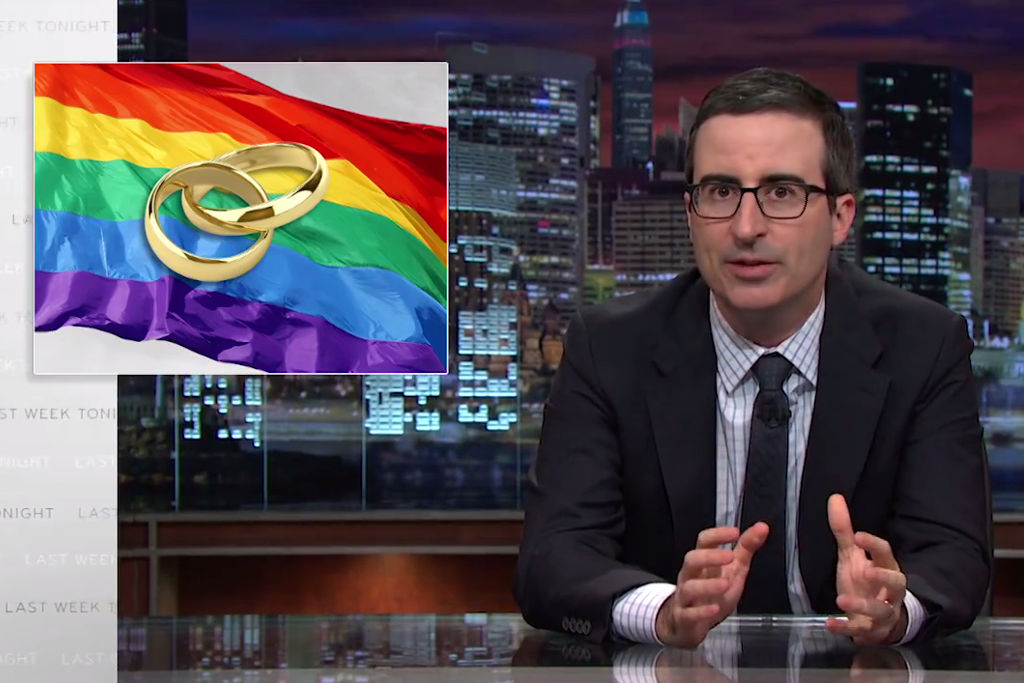John Oliver’s Piece On LGBT Discrimination Raises Big Questions For Australia
Does this focus on the one issue detract from LGBT rights at large?

As Australia’s debate about marriage equality deals in tiny metaphorical icebergs and leads to mounting disillusionment with the majority who support it, it’s easy to assume we’re miles behind the rest of the world — and yes, in many ways we are. The US and Ireland are among the most recent countries to grant LGBT citizens full rights to marriage under the law, and the landmark decisions have been celebrated as enormous victories within the ongoing fight for LGBT rights. But, as John Oliver pointed out in his most recent episode of Last Week Tonight, there are still plenty more problems to address — ones which Australia is actually already paying attention to.
“In 33 states people are at risk of being fired, evicted, or refused service just because they’re gay,” Oliver said, speaking about the lack of any nation-wide anti-discrimination laws in the US. “So while federal law may guarantee a gay couple’s right to get married, it offers absolutely zero guarantees about the things that normally follow that.”
This, in a society which just celebrated its proud commitment to LGBT rights with the rest of the world, is completely unthinkable. In fact, as Oliver noted, 70 percent of Americans assumed there were already laws in place nation-wide to prevent such practices.
Nevertheless, here’s actual footage of a gay couple who’ve been abused in a shitty roadhouse and lesbian parents who had a doctor refuse to treat their child. All of it was 100 percent legal.
Thankfully, in Australia this isn’t the case at all. In 2013, amendments to the federal Sex Discrimination Act ensured that no one could be explicitly abused or discriminated against on the grounds of their sexual orientation or gender identity. Though this may not always apply in practice — there are still of course an enormous number of everyday instances which go unreported — there’s at least some formal recourse to get these complaints acknowledged. Those who have suffered this kind of discrimination can take their claims to the Human Rights Commission and have their case heard in the Federal Court.
Most notably, these laws were the first in the world to explicitly acknowledge the rights of intersex people; a group which has traditionally fallen through the cracks of other types of legislation.
For the US, John Oliver’s right: this should absolutely be the focus of the debate about LGBT rights and each horrifying example of its effects proves how desperately it needs to be addressed. But, for us in Australia, we need to think about this the other way around: if our politicians can happily legislate groundbreaking anti-discrimination laws that affect the everyday lives of our LGBT population, why can’t we just let them get married already?

The state of the debate about marriage equality circa 2015.